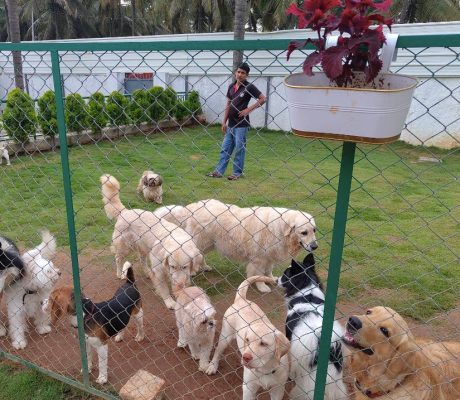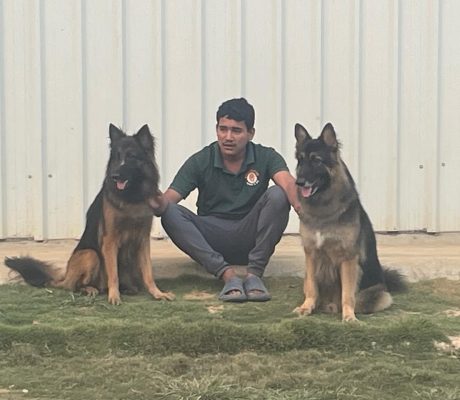India is home to a rich tapestry of wildlife and domestic animals, all of which hold a special place in the culture and heritage of the nation. To ensure that these animals are treated humanely and protected from cruelty, various laws have been enacted in India. These laws not only reflect the moral and ethical obligations of society but also provide legal frameworks for the protection of animals. In this blog, we will discuss some of the significant animal laws in India that every citizen should be aware of, emphasizing the importance of compassion and humane treatment of all living beings.
1. Fundamental Duty to Care for Animals
According to Article 51A(g) of the Constitution of India, it is the fundamental duty of every citizen to have compassion for all living creatures. This constitutional directive sets the foundation for all animal protection laws in the country, urging people to act with empathy and kindness towards animals.
2. Health Examination of Seized Animals
The Prevention of Cruelty to Animals (Case Property Animal) Rules, 2017, Rule 3(a), makes it mandatory for police stations to get seized animals examined by the jurisdictional veterinary officer. This ensures that animals in police custody receive appropriate medical attention, preventing further suffering due to injury or neglect.
3. Power to Search, Seize, and Provide Custody
The Prevention of Cruelty to Animals Act, 1960, Sections 32 and 34, empowers the police to enter any premises, and search, and seize animals in distress. A complainant can accompany the police officer, enhancing transparency during the rescue process. Furthermore, only a magistrate can decide the custody of a seized animal, as per the Prevention of Cruelty to Animals (Case Property Animal) Rules, 2017, Rule 3(b). This ensures that animals are placed in safe environments such as infirmaries, pinjrapoles (animal shelters), the Society for Prevention of Cruelty to Animals (SPCA), or other animal welfare organizations.
4. Registering FIRs for Animal Cruelty
Whenever information regarding cruelty to animals is received, the police must register a First Information Report (FIR) or a Non-Cognizable Report (NCR). This step is crucial for initiating legal action against the offenders and providing justice for the animals that have suffered.
5. Punishment for Killing or Maiming Animals
Under Sections 428 and 429 of the Indian Penal Code (IPC), along with the Prevention of Cruelty to Animals Act, of 1960, it is a punishable offense to kill or maim any animal, including street animals. Such acts of cruelty can result in imprisonment, fines, or both, depending on the severity of the offense. This law aims to protect domestic animals and stray animals that often face violence and cruelty on the streets.
6. Abandoning a Pet is an Offense
Abandoning a pet animal is also considered a punishable offense under Section 11(1)(i) and Section 11(1) of the Prevention of Cruelty to Animals Act, 1960. Pets depend on their owners for food, shelter, and care. Abandonment leads to immense suffering, including starvation, injury, and death. Therefore, the law holds pet owners accountable for abandoning their pets without any valid reason.
7. Slaughter Laws and Animal Sacrifice
The Prevention of Cruelty to Animals (Slaughterhouse) Rules, 2001, Rule 3, states that no animal, including chickens, can be slaughtered anywhere except in a licensed slaughterhouse. This law is crucial to ensure that animals are not subjected to unnecessary pain or suffering during slaughter. Additionally, animal sacrifice is illegal throughout the country under the same rules, emphasizing the government’s stand against religious or cultural practices that involve animal cruelty.
8. Neglect and Confinement of Animals
Denying an animal food, water, shelter, or exercise, or confining it for long periods, is considered neglect and is punishable under Section 11(1)(h) of the Prevention of Cruelty to Animals Act, 1960. Animals have the right to a basic quality of life, which includes adequate nutrition, clean water, and space to move. Neglecting these needs leads to both physical and psychological suffering.
9. Protection of Street Dogs
Street dogs cannot be relocated by any person or authority, except for sterilization or vaccination purposes by specified groups authorized by local authorities. This is stated in the Animal Birth Control (ABC) Rules, 2001. Relocating dogs away from their territories often leads to stress, disorientation, and conflicts with other animals, which is why this practice is restricted.
10. Licensing for Breeding and Selling Dogs
It is illegal to breed and sell dogs without obtaining registration and licensing from state animal welfare boards. The Dog Breeding and Marketing Rules, 2017, and the Pet Shop Rules, 2018, make it mandatory for breeders and pet shop owners to register themselves. These laws help regulate breeding practices, ensuring the welfare of dogs and reducing unethical practices like puppy mills.
11. Animal Fighting and Use for Entertainment
Organizing, inciting, or participating in an animal fight is a cognizable offense under Section 11(1)(m) and Section 11(1)(n) of the Prevention of Cruelty to Animals Act, 1960. Using animals like bears, monkeys, tigers, lions, and bulls for entertainment purposes is also prohibited under Section 22 of the same Act. These practices cause immense physical and psychological suffering to animals and are therefore strictly banned.
12. Wildlife Protection
The Wildlife (Protection) Act, 1972, Section 9, makes it illegal and punishable to own certain wildlife species such as monkeys and parakeets. Capturing, caging, or owning birds, including munias, mynahs, and bulbuls, is also prohibited. This law is designed to protect wildlife from illegal trade and exploitation. Additionally, capturing, trapping, poisoning, or baiting a wild animal is punishable under the same Act, ensuring that wild animals are protected in their natural habitats.
13. Transport and Handling of Animals
Transporting animals in any manner that causes them discomfort, pain, or suffering is a punishable offense under Section 11(1)(d) of the Prevention of Cruelty to Animals (Transport of Animal) Rules, 2001, and the Motor Vehicles Act, 1978. Confining hens in battery cages is also a violation of animal welfare laws. Transport rules are designed to ensure that animals are transported in humane conditions, without subjecting them to overcrowding or injury.
14. Animal Cruelty and Link to Violence
Research has shown a strong link between animal cruelty and violence against humans. Recognizing animal cruelty as a serious violent offense can help us understand and prevent other forms of violence in society. By addressing cruelty towards animals, we can also take steps towards creating a safer and more compassionate society for all living beings.
Conclusion
The laws protecting animals in India are a reflection of the nation’s values of compassion, empathy, and justice. By understanding and adhering to these laws, we can contribute to building a society where animals are treated with respect and dignity. As citizens, it is our responsibility to ensure that animals are not subjected to cruelty or neglect. Let us be the voice for those who cannot speak and work towards creating a world where every living being can live without fear or suffering.


















